2022 Yangtze River Delta Digital Economy Development Conference | Be a "trendsetter" in the digital age
Xinhua Daily Financial News On the afternoon of January 6, the 2022 Yangtze River Delta Digital Economy Development Conference hosted by Xinhua Daily was held in Nanjing. Digital economy business associations from three provinces and one city in the Yangtze River Delta, member enterprises of Jiangsu Digital Economy Federation, scientific research institutes, and Financial Institution Group gathered together to discuss the digital economy layout in the Yangtze River Delta region, new paths for digital economy development, and jointly seek digital development in important fields.
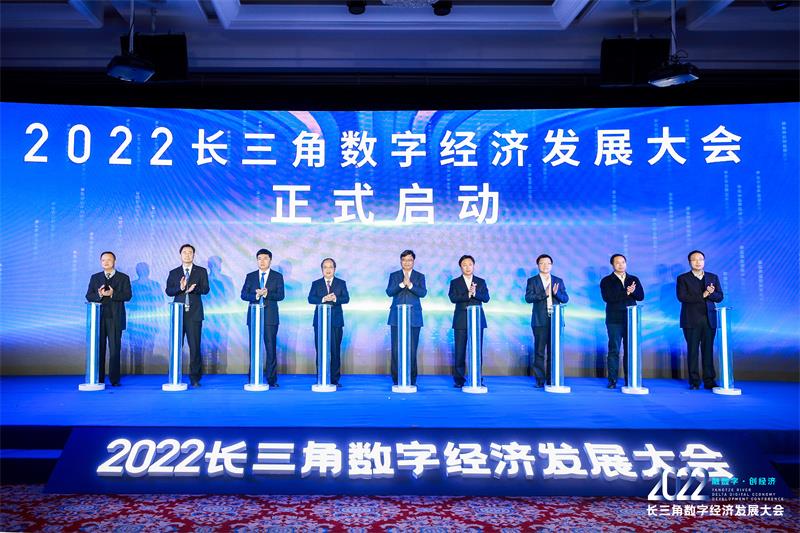
The 2022 Yangtze River Delta Digital Economy Development Conference was launched
Secretary of the Party Committee and President of Xinhua Daily, Chairperson of Xinhua Newspaper Media Group, Shuangchuxue, Secretary of the Party Committee and President of Jiangsu Academy of Social Sciences, Xia Jinwen, Vice Minister of the United Front Work Department of Jiangsu Provincial Party Committee and Secretary of the Provincial Federation of Industry and Commerce, Gu Wanfeng, Deputy Secretary of the Party Committee and Editor-in-Chief of Xinhua Daily, Gu Leiming, Academician of the Chinese Academy of Engineering and President of Nanjing University of Aeronautics and Astronautics, Shan Zhongde, former Director of the Provincial Development and Reform Commission,Professor Qian Zhixin of Nanjing University, Wen Zhigang, deputy director of the Jiangsu Provincial Development and Reform Commission, Zhao Jianguo, deputy director of the Jiangsu Provincial Department of Science and Technology, Chi Yu, deputy director of the Jiangsu Provincial Department of Industry and Information Technology, Zhou Hengxin, member of the party group and deputy director of the Jiangsu Provincial Department of Civil Affairs, Li Yang, member of the party committee and vice president of the Jiangsu Academy of Social Sciences, Gu Xindong, deputy editor-in-chief of Xinhua Daily, Chen Jing, member and vice chairperson of the party group of the Jiangsu Federation of Industry and Commerce, Zhu Guoqiang, deputy general manager of the Jiangsu Provincial Cultural Investment Group, Lin Jingran, vice chairperson of the Jiangsu Federation of Industry and Commerce and president of the Bank of Nanjing, Sun Libin, vice president of the Jiangsu Provincial Chamber of Commerce and Digital Economy Federation, Li Xiaodong, second-level inspector of the Jiangsu Provincial Federation of Industry and Commerce, and Chen Jun, deputy director of the Jiangsu
As a mainstream media group in Jiangsu, Xinhua Newspaper Media Group has also benefited from its "digital" wings. Media is the beneficiary of the digital economy, and it is also the aggregator, linker and amplifier of digital economic resources. The group feels a great responsibility and a glorious mission to pay attention to the development trend of the digital economy, track the development trend of the digital economy, and spread the development energy of the digital economy.
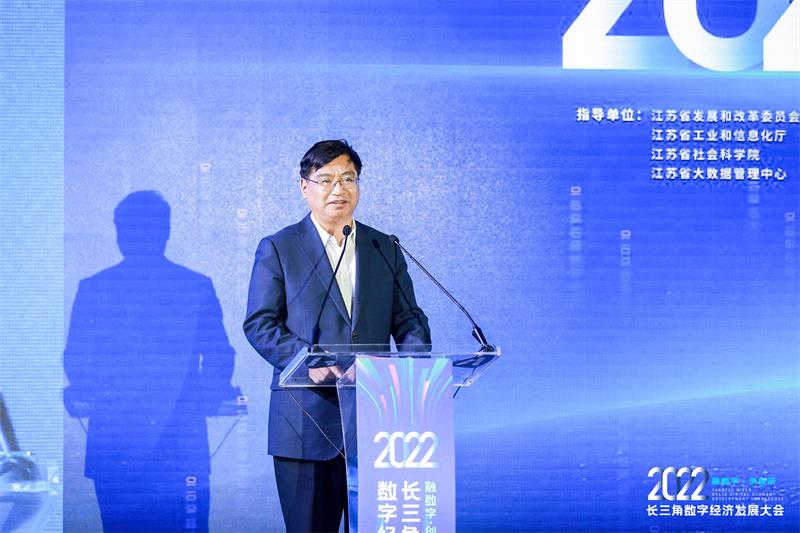
Secretary of the Party Committee and President of Xinhua Daily, Chairperson of Xinhua Press Media Group
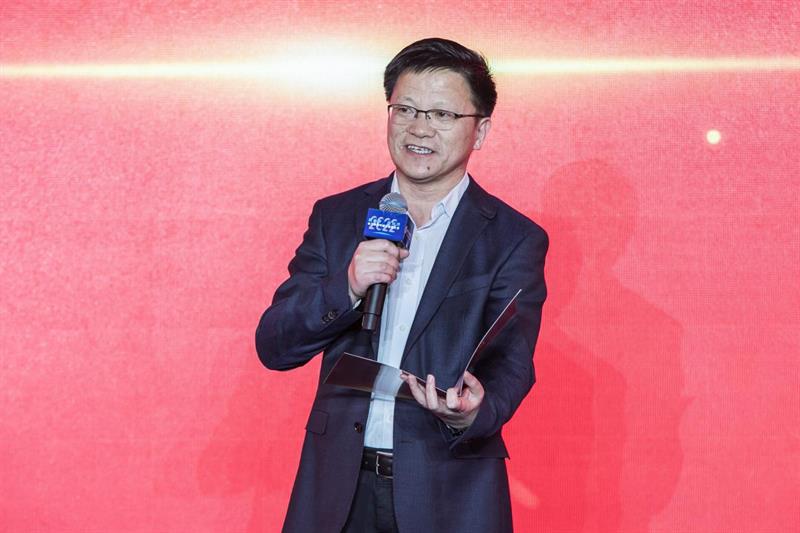
Gu Leiming, Deputy Secretary of the Party Committee and Editor-in-Chief of Xinhua Daily
Xia Jinwen, Secretary of the Party Committee and President of the Jiangsu Academy of Social Sciences, issued a question about the times and development of the digital economy era. He said that focusing on the digital economy layout in the Yangtze River Delta region and working together to study the new concepts, new paths and new kinetic energy of digital economy development is an important topic full of vitality and tension, full of interpretation and capital power. For the Yangtze River Delta, it is necessary to give full play to the respective advantages of one city and three provinces in the field of digital economy and build a national digital economy development highland.
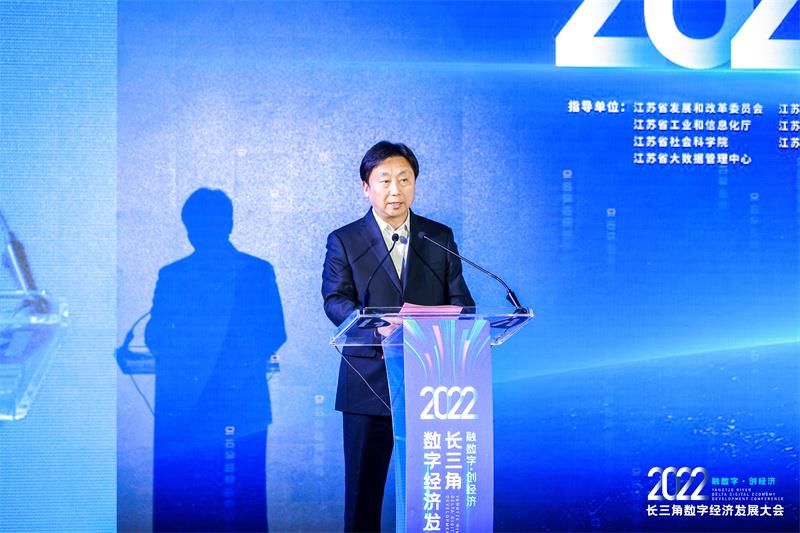
Xia Jinwen, Secretary of the Party Committee and President of Jiangsu Academy of Social Sciences
Digitalization empowers manufacturing and promotes high-quality development
Data is the oil of the digital economy era and a production factor for high-quality development. It empowers the transformation and upgrading of traditional industries and spawns new industries and new business models. In 2020, the scale of China’s digital economy will reach 39.20 trillion yuan, maintaining a year-on-year growth rate of 9.7%, becoming an important engine for stable economic growth. Among them, the bright Yangtze River Delta accounts for 28% of the total scale of the national digital economy and about 44% of the regional GDP.
Shan Zhongde, academician of the Chinese Academy of Engineering and president of Nanjing University of Aeronautics and Astronautics, suggested at the conference that Jiangsu manufacturing should deeply integrate information technology, digital technology and intelligent manufacturing, vigorously promote the deep integration of industry, university and research development and open cooperation, accelerate the construction of a manufacturing world talent center and innovation highland, and continue to promote the construction of an open and shared innovation system, and accelerate the development of advanced manufacturing and world-class industrial clusters.
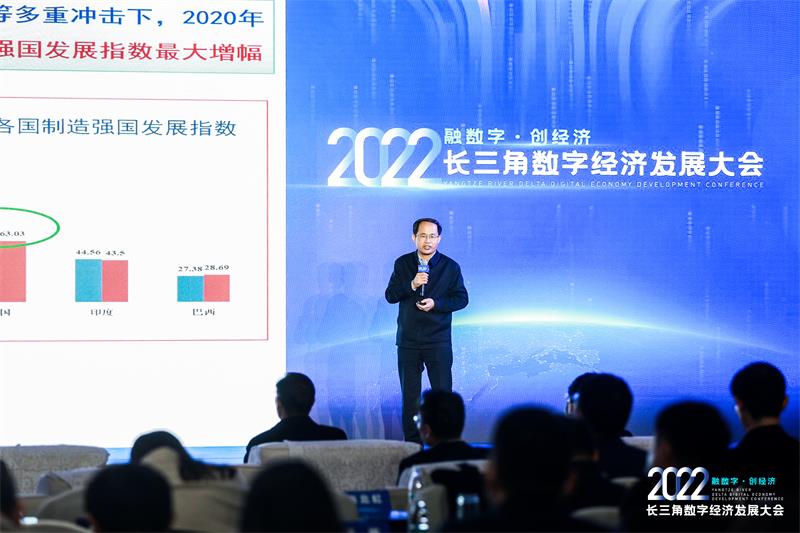
Shan Zhongde, Academician of Chinese Academy of Engineering and President of Nanjing University of Aeronautics and Astronautics
"Digitalization is the only way for each of our manufacturing industries. Although there are pains, it is also necessary to go." According to Zhang Chunlong, director and researcher of the Institute of Social Policy of the Jiangsu Academy of Social Sciences and executive vice president of the Jiangsu Institute of Regional Modernization, digitalization has caused the vigorous development of our economy and has become a strong driving force for the future development of our economy.
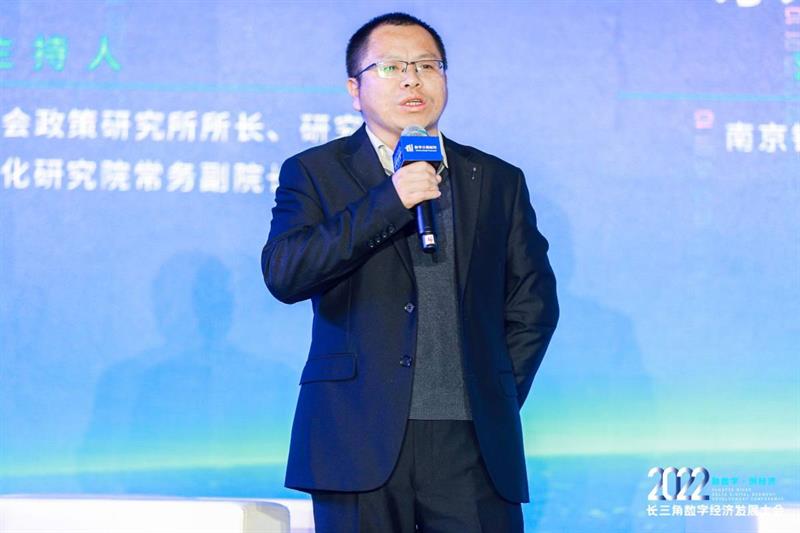
Zhang Chunlong, Director and Researcher of the Institute of Social Policy, Jiangsu Academy of Social Sciences, and Executive Vice President of Jiangsu Institute of Regional Modernization
The digital transformation and upgrading of the manufacturing industry is the key to improving the competitiveness of China’s manufacturing industry. Compaq Technology (Suzhou) Co., Ltd. is a company specializing in the manufacture of personal care products, daily necessities, toothpaste and other products. In 2015, after completing an industry acquisition, the company invested 40 million yuan to digitally transform it. And, in the following years, a total of nearly 100 million yuan was invested to digitally upgrade the production line. Now, the company has a unified set of physical control, quality control and design data standard management and control processes, which has realized the digital control of raw materials, filling technology, packaging and other links, meeting the needs of industry management.
Shuangliang Group has built a "big service" platform of "smart service" + "smart energy", building new competitiveness with the help of digital platform, driving business model changes with innovation, breaking through data barriers between platforms, and realizing cross-platform online operation of the whole life cycle of equipment. Xu Jianfeng, deputy general manager of the digital center of Shuangliang energy-saving system joint stock company, said that the current general equipment manufacturing industry is transforming into customized services, from selling equipment to selling services, which requires innovation in business models. Digital combined with modern services has become an important breakthrough point for manufacturing enterprise transformation and management upgrading.
Phoenix (China) Investment Co., Ltd. is a subsidiary of the German Phoenix Electric Group in China, focusing on the field of electronic connectivity and electronic interfaces, as well as the field of industrial automation. "We not only pay attention to the development of the company itself, but also take the initiative to take the initiative to bridge the Sino-German cooperation, bring Germany’s advanced technology, management concept and craftsman spirit to China, and actively promote and practice Industry 4.0." Gu Jiandang, president of the company, said that industrial enterprises hope to use the energy given by the new generation of information technology to unlock more potential through digital transformation. "At present, we have established an" Ecological Empowerment Co-creation Association "with local partner companies to open up cooperation, cross-border integration, and actively embrace the smart industry ecology." He said.
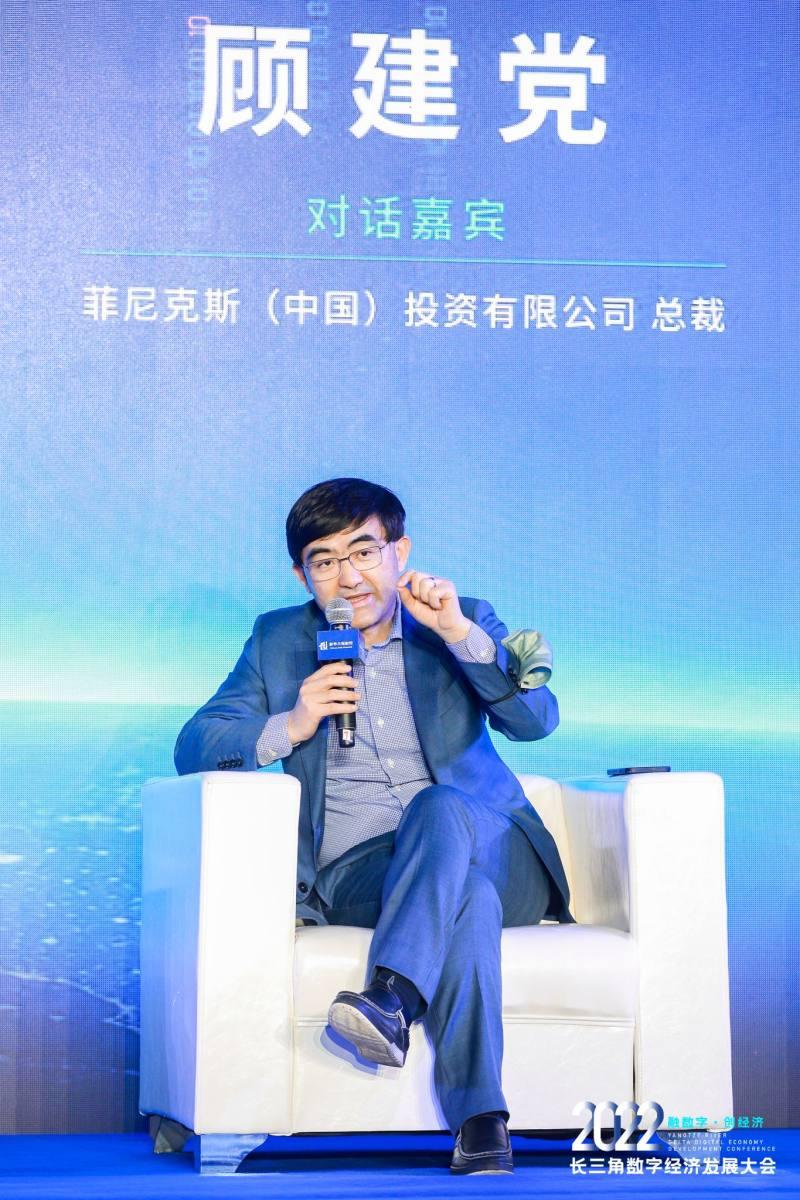
Gu Jiandang, President of Phoenix (China) Investment Co., Ltd.
Based on the integration of "data +", Liu Zhen, an IEEE academician and chairperson and co-founder of Aolin Technology, emphasized that although the development prospects of the digital economy are broad, pan-industrial enterprises urgently need to shift from informatization to digital intelligence, so that data can play an explicit business value. He believes that enterprise digital transformation should pay more attention to value-driven, so that enterprises can "see" the effect of digital transformation. Among them, enterprise digital twins are the engine of digital intelligence systems, which describe, diagnose, predict, and make decisions on enterprise operations and business activities, and then realize the interactive mapping of physical space and cyberspace.
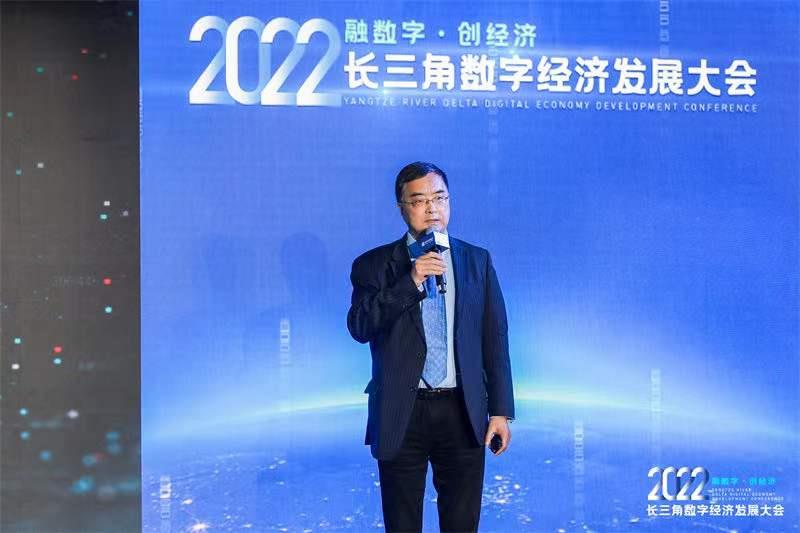
IEEE academician, chairperson and co-founder of Aolin Technology
Grasp the "key increments" of the digital economy, become better, stronger and bigger industries
Digitalization is not only an inevitable demand for the development of the real industry, but also invisibly rewrites all walks of life. China’s industry is undergoing tremendous and subtle changes.
The digitalization of the service industry is an important trend in the optimization and upgrading of the industrial structure, which will inject new impetus into the high-quality development of our country’s economy. For example, Jiangsu Dayun Cultural Tourism Development Co., Ltd. is a wholly-owned subsidiary of Jiangsu Provincial Cultural Investment Group, which undertakes the investment functions of Jiangsu Provincial Cultural Investment Group to fulfill the cultural protection, inheritance and utilization of the Jiangsu section of the Grand Canal Cultural Belt and the integrated development of cultural tourism. It is a new era comprehensive cultural tourism development enterprise that promotes cultural construction and tourism development and empowers the establishment of the Grand Canal Cultural Tourism Project.
Zhu Guoqiang, deputy general manager of Jiangsu Provincial Cultural Investment Management Group, party committee member and chairperson of Jiangsu Dayun Cultural Tourism Development Co., Ltd., said that the company’s digital cloud platform for the Grand Canal National Cultural Park covers the development and operation of the smart cultural tourism platform, the planning and construction of the digital cloud platform for the National Grand Canal Cultural Park, the promotion of cultural tourism scenic spots, the mining of cultural and creative projects, education and sports, and research and learning operations. It has now formed a business layout in four major sectors: culture, tourism, science and technology, and sports. The platform has created the country’s first "one cloud and four ends" online Grand Canal overall framework, creating a cloud-based government server level, public server level, Enterprise Services end and international communication end, to achieve cross-regional, cross-system, cross-departmental information collection, data analytics, collaborative office, project management, to solve the canal management main body, cultural and tourism resources scattered pain points.
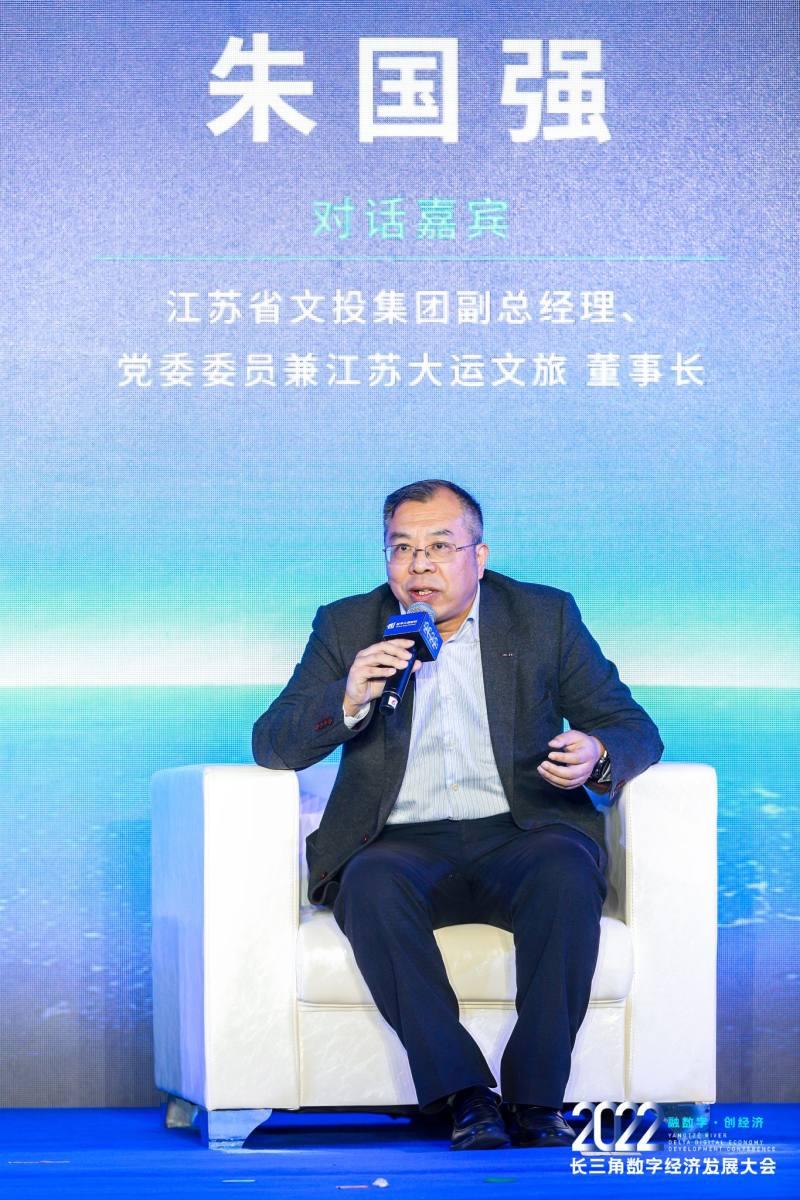
Zhu Guoqiang, Deputy General Manager of Jiangsu Cultural Investment Management Group, Party Committee Member and Chairperson of Jiangsu Dayun Cultural Tourism Development Co., Ltd.
The financial industry is an industry that entered the digital age earlier, and many business scenarios are being reshaped digitally. "The digital transformation of commercial banks should be closely related to business processes, providing customers with better and more convenient service experience, helping to explore more business scenarios and find sustainable profit growth points." Yu Xuanjie, chief information officer of Bank of Nanjing, said that around the "1 + 3" action plan of customer expansion and quality improvement carried out by Bank of Nanjing, we have accelerated the online process of public products. At the same time, we have launched digital credit cards for retail customers, and the financial service capabilities of various scenarios have been continuously enhanced.
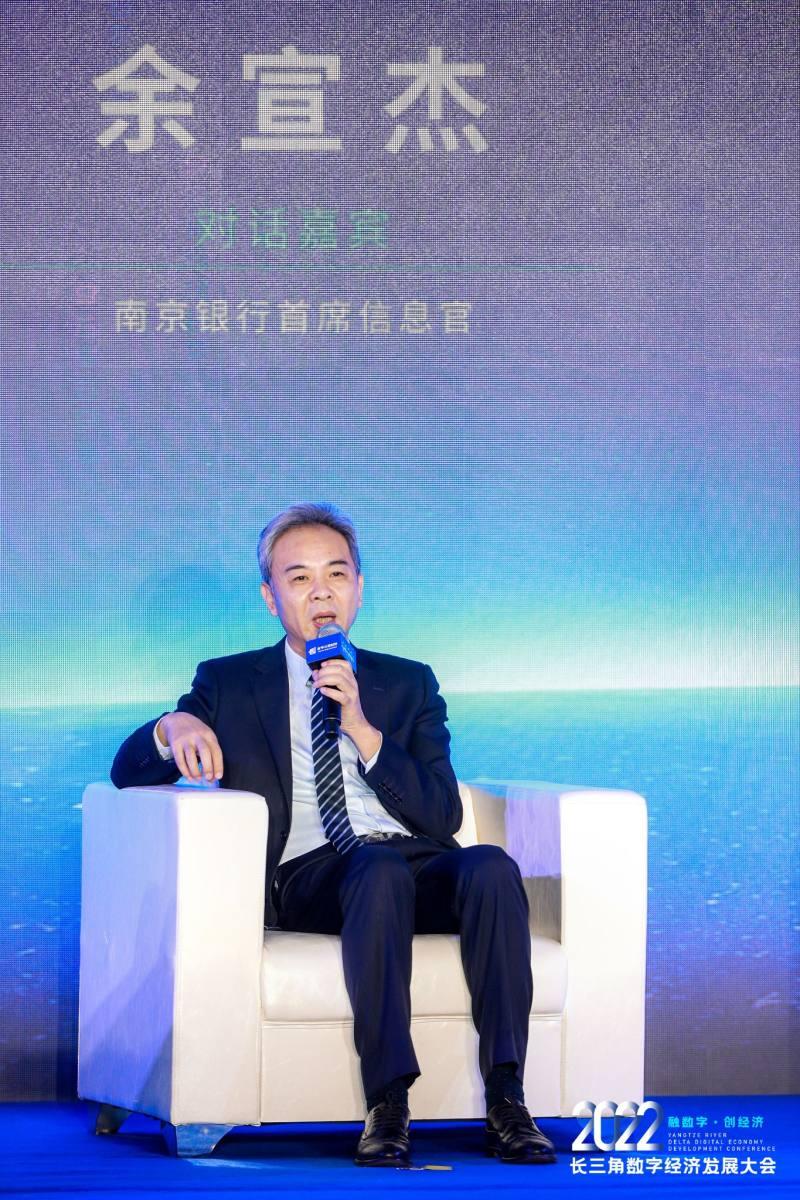
Yu Xuanjie, Chief Information Officer of Bank of Nanjing
To create characteristic digital services, the digital transformation of China Merchants Bank Nanjing Branch has fully penetrated into many scenarios such as convenience, convenience and wealth management, running through all aspects of social livelihood and business operation, and has successively launched "convenience service cloud platform", "hall identification system", "one-stop online payment platform", "salary and Futong", "wealth through train", "come to invest", "capital verification treasure" and other financial products, effectively meeting the financial needs of users through "people + digitalization".
Allocate factor resources and do a good job in the "new infrastructure" of the digital economy
With the collision and integration of digitalization and industry, the efficiency of factor resource allocation and the improvement of value creation model. At the same time, a group of information technology companies were born in response to the times, with "data" as the paddle, the wave of the tide era.
A number of well-known enterprises in the industry, such as iFLYTEK and Huayun Data, have deeply cultivated the industry and made data-driven effective in the enterprise. As a well-known domestic Xinchuang cloud computing group, Huayun Data Holding Group is committed to building a dual moat of digital transformation and information technology application innovation. It has become the earliest group of standard makers for the long-term development of China’s Xinchuang industry based on rules, the most backbone of innovation guardians driven by scientific and technological hard power, and the most reliable peers to help ecological partners achieve digital transformation.
Founded in March 2021, Yancheng Big Data Group Co., Ltd. focuses on big data infrastructure building, innovative application of government data assets, development and operation of information projects, investment and development of digital industries, and ecological construction of digital economy, focusing on big data, artificial intelligence, robotics and other new generation information technology industries, and strives to empower high-quality development with data.
Fang Jingyan, head of Jiangsu Pengwei Software Co., Ltd., said that digital transformation is closely related to the development of enterprises. At present, many enterprises have a foundation for digitalization, and how to connect digitalization with production and operation requires professional planning. Pengwei has been focusing on CRM software for 15 years, and has continued to make efforts in mobile application solutions. With the help of new thinking and new technologies of mobile Internet, it helps enterprises improve their management mode and management level, and improve their core competitiveness.
Wang Wei, founder of Qingke Chain Valley, introduced that Qingke Chain Valley is a tangible physical carrier, a park, and an intangible and unbounded service platform. On the one hand, we provide enterprises with smart park-style digital services, and on the other hand, as a blockchain technology service platform, we empower the society and the government to solve the problem of data on the chain.
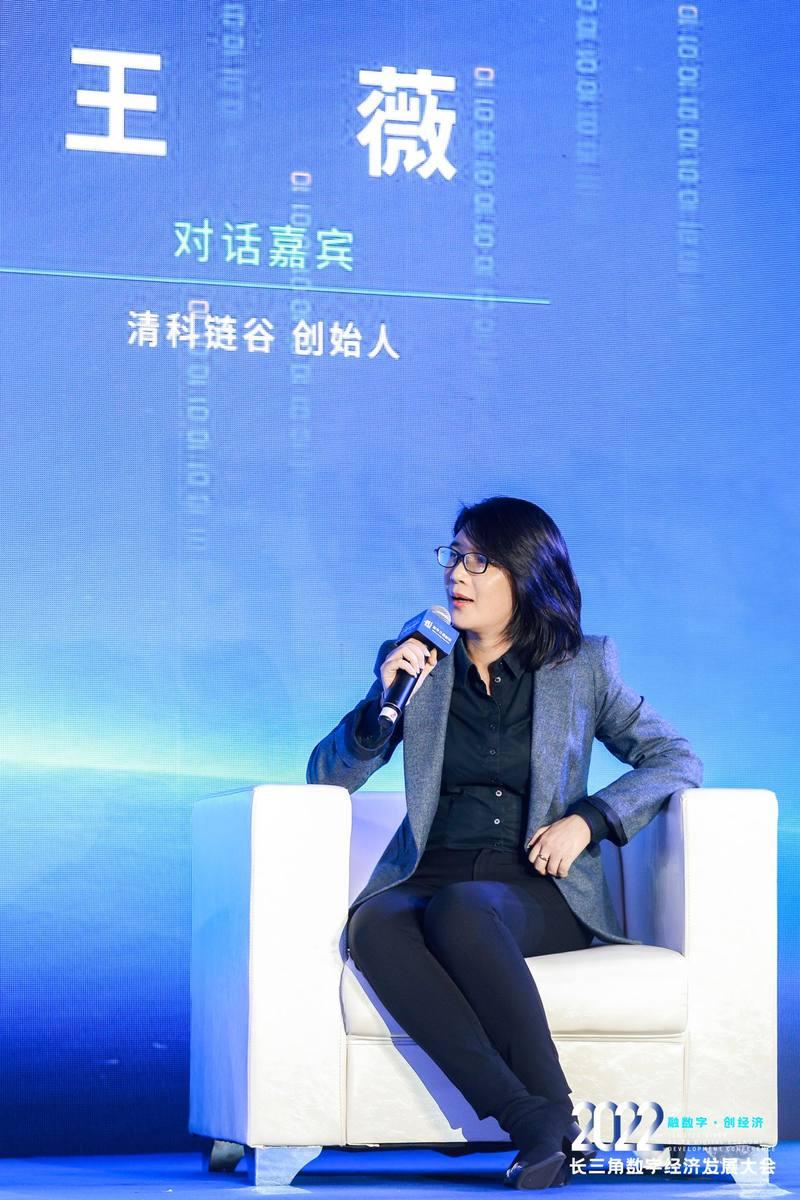
Wang Wei, founder of Zero2IPO Chain Valley
At the meeting, the Jiangsu Provincial Digital Economy Federation and the Party Branch of the Jiangsu Provincial Digital Economy Federation were officially established. Gu Wanfeng, deputy director of the United Front Work Department of the Jiangsu Provincial Party Committee and party secretary of the Provincial Federation of Industry and Commerce, said that currently, Jiangsu’s industry is facing an important turning point in the conversion of old and new kinetic energy. The integration and innovation of all walks of life and the digital economy is an effective path to achieve high-quality development, and it is also the only way to maintain Jiangsu’s economic vitality and competitiveness. "The majority of entrepreneurs should strengthen their awareness of development and speed up digital transformation." He said that he hoped that the federation will aim to build consensus and strengthen political leadership; rely on its characteristics and advantages to improve service quality and efficiency; and take standardized development as the guide and play a collaborative governance role.
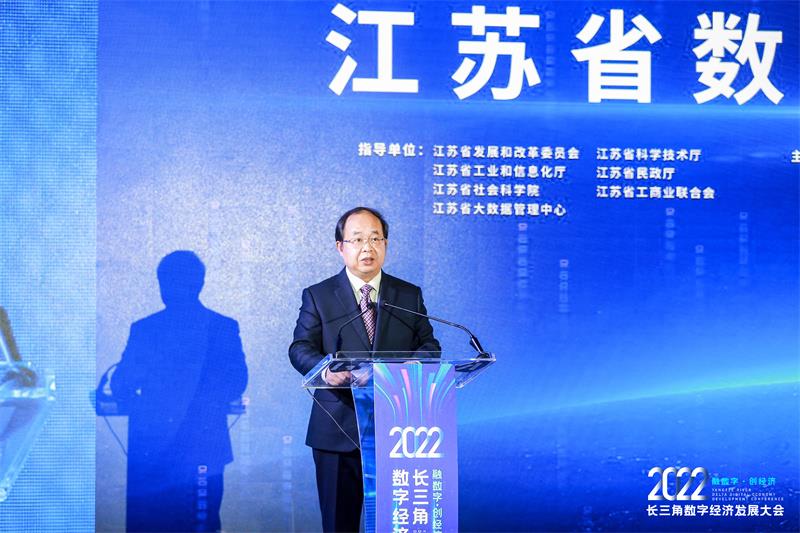
Gu Wanfeng, Vice Minister of the United Front Work Department of the Jiangsu Provincial Party Committee and Secretary of the Provincial Federation of Industry and Commerce
Sun Libin, president of the Provincial Digital Economy Federation, said that the Federation will give full platform advantages, strive to seize the commanding heights of the new round of scientific and technological revolution, and help Jiangsu’s economic transformation and upgrading; strengthen cooperation with other provinces and cities in the Yangtze River Delta region related to digital economy, promote data industry cooperation and platform co-construction, give full play to the synergy effect of the Yangtze River Delta network, and jointly promote the development of the integration of the Yangtze River Delta digital economy.
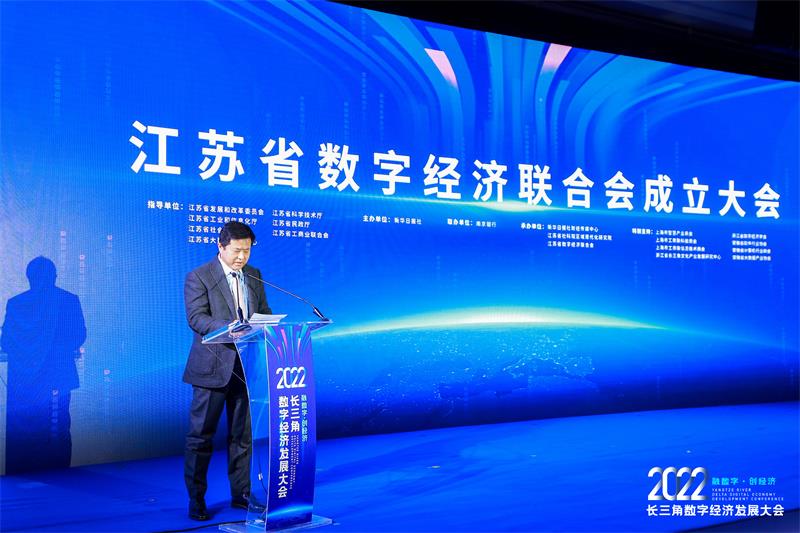
Sun Libin, President of Jiangsu Digital Economy Federation
Zhou Hengxin, deputy director of the Provincial Department of Civil Affairs, said in his speech that the digital economy is related to the overall situation of national development, and the development of the digital economy is a strategic choice to grasp the new round of scientific and technological revolution and new opportunities for industrial transformation. We will strongly support the work of the federation and continue to pay attention to the growth and healthy development of the federation.
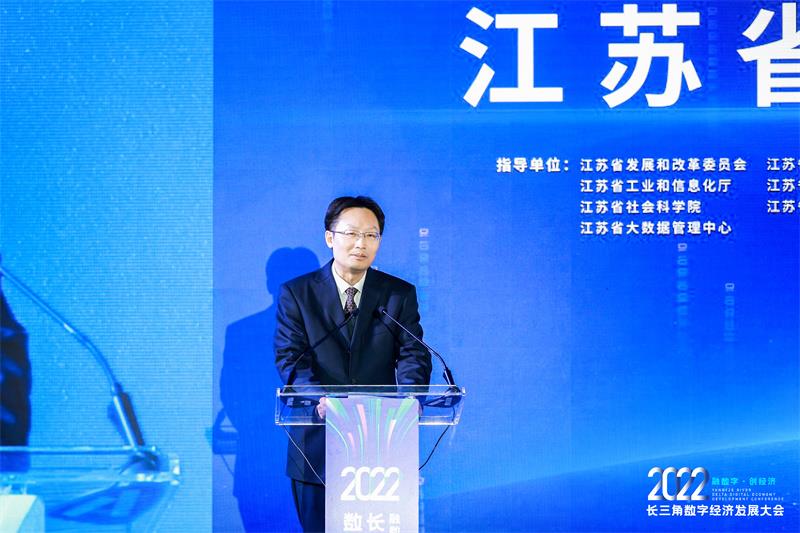
Zhou Hengxin, Deputy Director of the Department of Civil Affairs of Jiangsu Province
At the meeting, Gu Leiming, deputy secretary of the party committee and editor-in-chief of Xinhua Daily, and Li Yang, deputy dean of the Provincial Academy of Social Sciences, awarded licenses for the Yangtze River Delta digital transformation "benchmark case" enterprises, and Gu Xindong, deputy editor-in-chief of Xinhua Daily, and Chen Jing, a member of the party group of the Provincial Federation of Industry and Commerce, and vice chairperson, awarded licenses to Nanjing Bank joint stock company, China-Italy Life Insurance Jiangsu Branch, Huayun Data Holdings Group Co., Ltd., Nanjing Metro Operation Co., Ltd., Huatai Securities joint stock company and other Yangtze River Delta digital transformation "excellent case" enterprises. At the same time, 10 companies including Jiangsu Bank joint stock company, Yancheng Big Data Group Co., Ltd., Nanjing Jindun Public Safety Technology Research Institute Co., Ltd., Nanjing Qingke Chain Valley Technology Service Co., Ltd., Nanjing Woxu Communication Technology Co., Ltd., Compaoli Technology (Suzhou) Co., Ltd., Shanghai Sino-Austrian Industrial Development Co., Ltd., China Merchants Bank joint stock company Nanjing Branch, Ningbo Bank joint stock company Nanjing Branch, and CLP Jinxin Software (Shanghai) Co., Ltd. were awarded the "innovation case" of the digital transformation of the Yangtze River Delta. Qian Zhixin and Li Xiaodong, the second-level inspector of the Provincial Federation of Industry and Commerce, awarded the award to the winning enterprises.
Xinhua Daily · Financial Reporter, Chen Xian, Chu Chu, Meng Peijia
Trainee reporters, Cui Hao, Zhan Chao